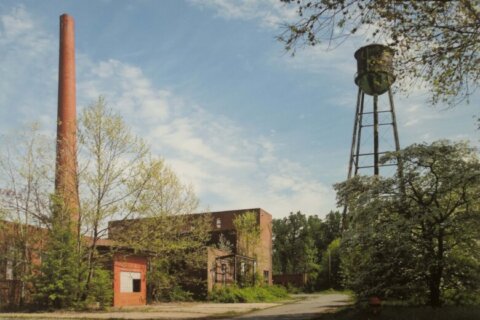Maryland transportation officials briefed the Prince George’s County Council on the funding situation facing those agencies this week for almost 90 minutes.
While a lot of subjects were discussed, a significant amount of time was spent not on the vehicles traveling the roads, but what drivers leave behind on the side of them: litter.
“When I first ran in my special election I thought people wanted to talk about the schools or health care,” Council member Ed Burroughs said. Instead, he heard about litter.
While there was lots of talk about the importance of educating people about the matter, he wasn’t buying it.
“People know they’re not supposed to litter,” Burroughs said.
“People know that it’s wrong but they do it,” Council Chair Jolene Ivey said a few minutes later.
But were they right?
“In reality I hear from plain citizens that they think it’s our job to go behind them and clean up,” said Will Pines, State Highway Administration administrator.
And that thinking costs the state, and ultimately those who drive through it, lots of money in taxes paid and wasted gas by sitting in traffic.
The state spends millions of dollars on litter pickup along state highways every year, resulting in thousands of truck loads of trash taken away, Pines said.
And much of it is taken from Prince George’s County, which gets about $3.5 million worth of litter pickup, “which accounted for 19% of the total litter expenditure statewide,” Pines said, adding that the county has more miles than any other in the state and ranks No. 2 in dollars per mile cleaned up.
“We could have continued to increase those costs to remove even more, but these expenses cut from other precious state dollars and reduce our ability to deliver on other critical infrastructure projects,” he added.
Over the course of the hearing, the council lamented the situation, saying there needed to be strong, more punitive punishments for littering, and cameras or other pieces of technology that could be used to catch litter bugs in the act.
Ivey said the amount of trash, and even abandoned boats left along Tuxedo Road had residents in the Cheverly area sarcastically referring to the industrial road as the Tuxedo Yacht Club.
After the meeting, Pines said the environmental impact is greater than people think, with animals eating trash and then dying because of it. It also leads to clogged storm drains that then flood the roads.
But the money the state spends on picking up trash also keeps you stuck in traffic.
“The litter issue is bigger than just a dollar on litter,” Pines explained. “When we go to do our construction program,” he said the state usually gets $9 in federal money for every dollar it spends on a project. “We only have to provide the match.”
“So when we lose that dollar of state money it is a lot of lost opportunity on federal money for our projects,” Pines said. “We really are harmed in a lot of ways on being able to deliver projects by wasting money on cleaning up litter.”
Get breaking news and daily headlines delivered to your email inbox by signing up here.
© 2024 WTOP. All Rights Reserved. This website is not intended for users located within the European Economic Area.








